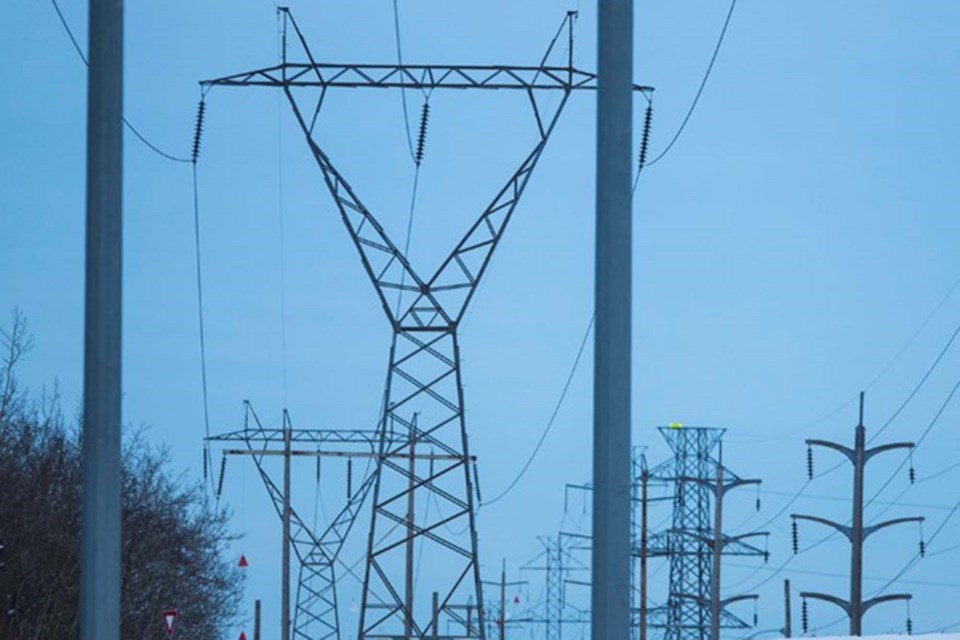ST. ALBERT - St. Albert residents on the default regulated rate option (RRO) for electricity should expect their power bills to increase significantly following a 4.4 cent rate hike on Aug. 1.
The regulated rate option is a fluctuating rate for electricity that serves roughly 35 per cent of Albertans. It's considered the non-competitive rate for those who would rather not, or cannot, sign contracts for fixed rates through providers including Epcor, ENMAX, ATCO, Fortis Alberta and others. In St. Albert, those on RRO plans are served by Fortis Alberta.
Each month, the independent Alberta Utilities Commission (AUC) approves RRO rates for the various utility providers. For August, the AUC approved a 4.4 cent per kilowatt hour electricity rate hike for local provider Fortis Alberta, as well as similar increases for other providers. The largest RRO rate increase taking effect this month is for those served by Direct Energy, which will implement a nearly six-cent increase.
The widespread RRO increase is a result of the provincial government's three month cap on RRO electricity rates at the beginning of 2023. Through January and March of this year, the government's cap meant RRO customers wouldn't be charged more than 13.5 cents per kilowatt hour, despite approved rates for those months ranging from 20-32 cents per kilowatt hour.
Given that approved rates were much higher than the capped rates, the three-month cap meant utility companies deferred about $200 million in charges, which are now being paid down by increasingly high monthly RRO rates.
Late last month, CBC News reported Albertans on the RRO could see their power bill jump by as much as $125 because of the rate increase.
Fixed-rate providing relief?
The common alternatives to the RRO for electricity are the fixed- or floating-rate options offered by all competitive utility providers.
The fixed-rate option, as the name implies, means utility consumers enter into a contract with a utility provider to be charged a stable rate for electricity over the term of the contract. Fixed-rate options allow consumers to avoid sudden increases or decreases in market rates.
The floating-rate option still comes with a contract; however, monthly electricity rates ebb and flow with market rates, meaning consumers risk paying high rates when market prices jump.
Two local families on fixed rates said they had differing experiences with their contracts.
Steve Hofstede and his family of four have a fixed-rate contract through Epcor; however, he said at multiple points this year the family's monthly electric and gas bill combined will double in price, and in April, their bill inexplicably tripled.
“We literally had a gas and power bill that together was just under $900 and our usage had not changed, (it) was exactly the same as the previous month,” he said. “Our normal is $270 or something like that, and then all of a sudden it'll just be $500.”
Hofstede said the family is diligent about power usage and avoids using energy when not absolutely needed, but the nearly $900 bill “seemed pretty egregious.”
David James and his family of two haven't seen any “horrendous” bills as Hofstede and many other Albertans have reported in recent months. James guessed this might be because his family switched to a fixed rate option with their electricity provider, ENMAX, in 2021, and because they have been able to upgrade many household appliances to more efficient models.
“In late 2021 I read about possible increases in natural gas prices and switched us to the fixed-rate option for gas and electricity which are significantly lower than (what) the RRO has been,” James said.
“We do try to minimize our energy consumption,” he said. “While our furnace is quite old, it is high efficiency and in the last two to three years we have replaced the washing machine, dryer, dishwasher and hot water tank with more efficient models.”
James said the family also benefited from the former NDP provincial government's 2017-18 Residential No-Charge Energy Savings program that distributed free energy-efficient light bulbs, power bars, and shower heads to households who signed up for it.
Despite not being too concerned about his utility bills now, James said he was nervous to see what a new fixed rate would entail when his current contract ends next year.




